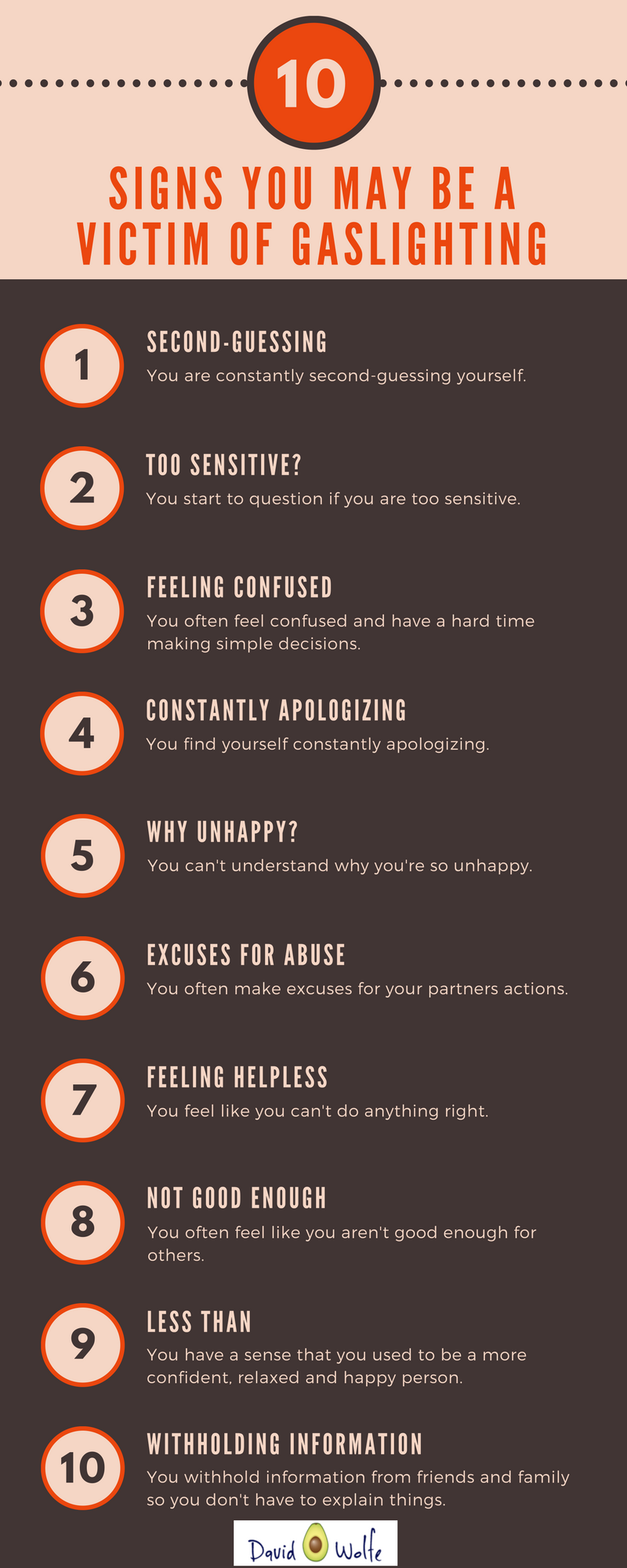
The term “gaslighting” first originated in Patrick Hamilton’s 1938 play, Gas Light, in which a manipulative husband drives his wife to the brink of insanity by causing her to question her own reality.

When used chronically to control a victim, it becomes a damaging aspect of psychological abuse, placing the survivor at risk for depression, anxiety, PTSD, suicidal ideation and even what is called by some therapists as “Narcissistic Abuse Syndrome” (Van der Kolk, 2016 Walker, 2013 WolfFord-Clevinger, 2017 Staik, 2017). When this is done repeatedly to override what was truly experienced, it can leave an immense dent in the fabric of someone’s perceptions and ability to trust themselves. They will repeat falsehoods so often that they become ingrained in the victim’s mind as unshakeable truths. Deliberate manipulators who gaslight with the intention of eroding your reality and rewriting history tend to use the “illusory truth effect” to their advantage. The illusory truth effect can cause us to become susceptible to the effects of another dangerous form of reality erosion known as gaslighting.

Surprisingly, familiarity often trumps credibility or rationality when assessing the perceived validity of a statement (Begg, Anas, and Farinacci, 1992 Geraci, L., & Rajaram, 2016). This is because when we’re assessing a claim, we rely on either the credibility of the source from which the claim is derived or familiarity with that claim. Researchers Hasher, Goldstein and Toppino (1997) discovered that when a statement (even when it is false and readers know it to be false) is repeated multiple times, it was more likely to be rated as true simply due to the effects of repetition. In other words, a lie that is repeated long enough eventually can be seen as the truth. When an abuser continually tells you that you are oversensitive or that what you are experiencing is in no way abuse, you begin believing it, even if you know deep down it isn’t true. How do you convince someone that something they know to be true isn’t? In psychology, what is known as the “illusory truth effect” is a phenomenon in which a listener comes to believe something primarily because it has been repeated so often.

By Shahida Arabi Updated January 25, 2022


 0 kommentar(er)
0 kommentar(er)
